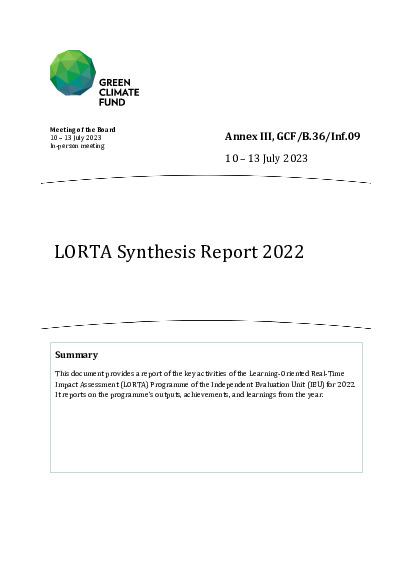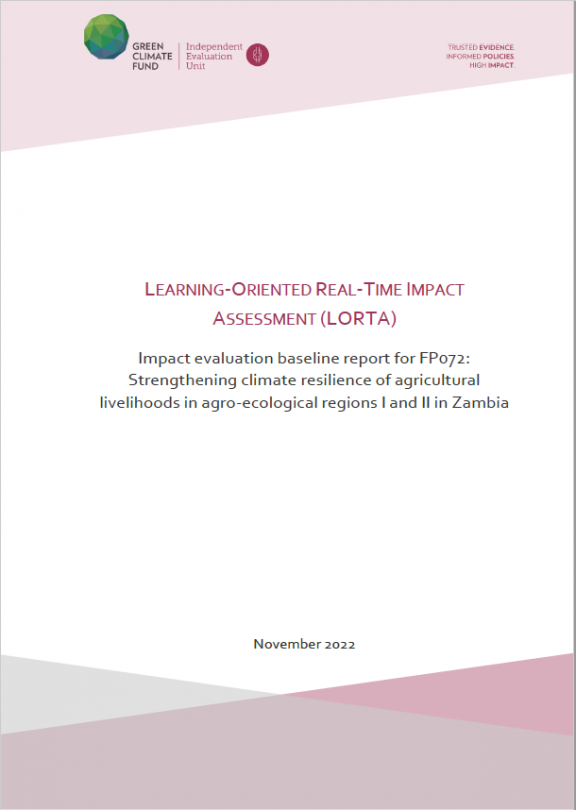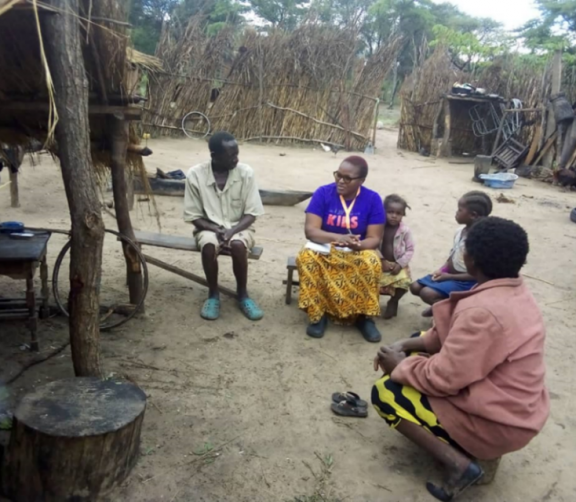FP072
Strengthening climate resilience of agricultural livelihoods in Agro-Ecological Regions I and II (SCRALA)
Strengthening climate resilience of agricultural livelihoods in Agro-Ecological Regions I and II (SCRALA)
This evaluation aims to assess the impact of FP072, the "Strengthening climate resilience of agricultural livelihoods in Agro-Ecological Regions I and II in Zambia (SCRALA)." The project aims to increase climate resilience of smallholder farmers in Zambia through interventions including increased access to climate information services, support for climate-resilient agricultural inputs and practices, sustainable water management, and alternative livelihoods. The impact evaluation focuses on the impact of alternative livelihood activities, including the distribution of beehives and goats to vulnerable communities.
-
TopicAgriculture & adaptive livelihoods
-
Project componentMore resilient agricultural production and lifestyle diversification
-
Impact evaluation designDifference-in-Difference (DiD)
-
Target beneficiariesFemales make up 50.2 per cent of the 150,000 beneficiary farming household recipients. The baseline sample size reached 1,251 households in the treatment group and 1,232 in the control group, with a total of 2,483 households.
Timeline
Onboarded to LORTA
Jul 2018
Baseline data collected
Dec 2020
Baseline report published
Nov 2022
Endline report to be published
Oct 2025
One region
- Africa
One country
- Zambia
Reports

LORTA Synthesis Report 2022
19 Jun 2023
This document provides a report of the key activities of the LORTA Programme for 2022. It is Annex III of a report of the key activities of the Independent Evaluation Unit (IEU) for the period of 1 January to 30 April 2023. It reports on the IEU’s outputs and achievements in line with its Board-approved work plan for 2023.

Impact evaluation baseline report for FP072: Strengthening climate resilience of agricultural livelihoods in agro-ecological regions I and II in Zambia
01 Nov 2022
This report presents the baseline data for “Strengthening climate resilience of agricultural livelihoods in agro-ecological regions I and II in Zambia” (SCRALA), a project funded by the Green Climate Fund and implemented by the United Nations Development Programme in Zambia. The report includes descriptive statistics collected for the baseline phase of the SCRALA impact evaluation.
Impact
Baseline results: Results from the baseline data collected in 2020 highlighted significant differences between beneficiary and non-beneficiary households across indicators including household expenditures, asset ownership, and food consumption. The impact evaluation team will control for the systematic differences using the difference-in-differences methodology.
To be shared in 2026.
To be shared in 2026.
Details
The project: FP072 strengthens the capacity of smallholder farmers to plan for climate risks, improving food security and income generation by promoting climate-resilient farming and diversification practices, enhancing access to markets and fostering the commercialization of climate-resilient agricultural commodities. The project is financed by the GCF, the Government of Zambia, and the United Nations Development Programme, and implemented by the Zambian Ministry of Agriculture.
The project aims to achieve increased resilience by taking a value chain approach, addressing barriers to climate-resilient agriculture across key stages of the value chain – planning, inputs, production, and post-production – through various activities such as input support, training, and infrastructure development. To achieve this, the project is implementing interventions that strengthen and promote viable climate-resilient value chains relating to smallholder agriculture, specifically targeting gender-sensitive value chains that provide viable economic opportunities for women.
Impact evaluation: LORTA’s impact assessment focuses on measuring the impact of the distribution of beehives and goats to the vulnerable communities as an adaptation measure to improve climate resilience of the communities.
